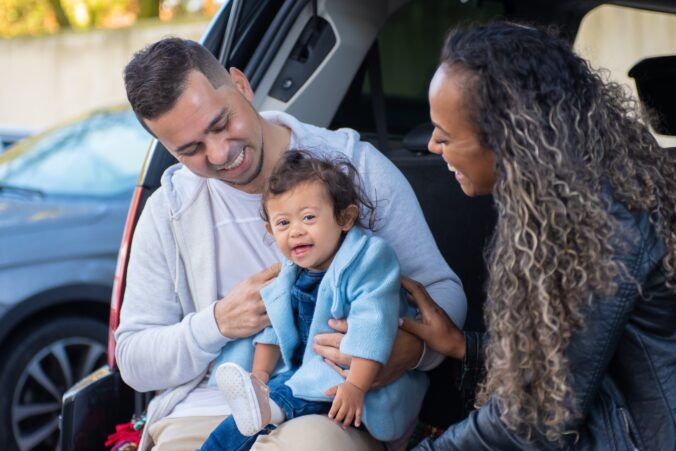
There has been little reaction to the news that 95pc of babies diagnosed with Down Syndrome before birth at the Rotunda hospital are subsequently aborted in England.
The response to these horrendous figures has been silence or fatalism. For some, it is an individual “choice” to be respected. There is nothing to be worried about or, even when people find the figures regrettable, little can be done.
“I don’t have a view on whether that is the right thing. We don’t advocate for it, that is just the lived experience”, said prof Fergal Malone, master of the Rotunda.
Is it true? Is it really a purely personal choice, without outside influence or expectations from others? Two recent studies on the experience of parents of children with DS indicate otherwise.
Irish research published last year interviewed eight people following the birth of a child with DS. Some praised the doctors and nurses, but others said the information they received was too medically focused and too negative. It is very hard to believe the same does not happen to couples who are told their baby has DS before it is born.
“Don’t come in with a list of negatives, all the negatives that were put in your head initially we never expected her to be this good now”, said one of the interviewed mothers.
She recalls: “We received purely negative information that she could have this or that, …”
A father said, “Doctors should show compassion when they are delivering the news, have patience and don’t be rushing in and out”.
A Danish study spoke to parents who were told their babies had Down Syndrome before they were born. In Denmark, almost all children with DS are aborted.
The study notes: “Following the diagnosis, the couples were generally critical of the information provided by the hospital. Some felt that the health professionals had painted an unnecessarily grim picture of Down Syndrome based on what couples perceived as outdated information. … Some felt that there was an unnecessary focus on potential diseases and additional diagnoses when the couple was more interested in their potential for living a fulfilling life.”
Participants in the study report feeling pressure from health professionals they encountered to abort, or else that they were presented with overly negative information about their babies.
The research found that “couples felt that termination of pregnancy had been taken for granted following the diagnosis: ‘As the obstetrician sat down, she put those abortion application forms on the table in front of her’”, recalls a mother.
Even conveying apparently neutral information, such as presenting what other couples generally do, can condition parents. We tend to imitate others. Social expectations can be subtle and unconscious.
“Maybe there’s something wrong with me since I don’t just do what 98pc of all people would do”, said a Danish mother in the study, who decided to have the baby.
“The high percentage of terminations in Denmark was a source of doubt and uncertainty during the decision-making process. This left the couples feeling vulnerable”, it notes.
“Why is Down Syndrome the disability [considered] socially acceptable to terminate? And how do we come back from that?”, asks actress Sally Phillips in her documentary “Prenatal Genetic Testing” where she investigates how Non-Invasive Prenatal Tests have increased the number of babies with DS, and other genetic or chromosomal anomalies, who are being aborted. Phillips has a son with Down Syndrome.
These tests, which can take place in the first trimester of pregnancy, are becoming more affordable and available. They can be used to prepare families to welcome a child with medical anomalies, or they can be used to get rid of them, as almost always happens when a diagnosis of DS is given. A proper ethical debate about those prenatal tests has still to happen in Ireland.
In a society that has normalised abortion, the main way to fight the progressive elimination of children with DS is for doctors to portray life with the condition, and life for the parents of such a child, in far more positive terms than seems to be the case at the moment. The medical professionals claim to be neutral about their use, but being not directive isn’t enough when society goes in one direction only.
Certainly, a national debate is called for.
Nessun commento:
Posta un commento